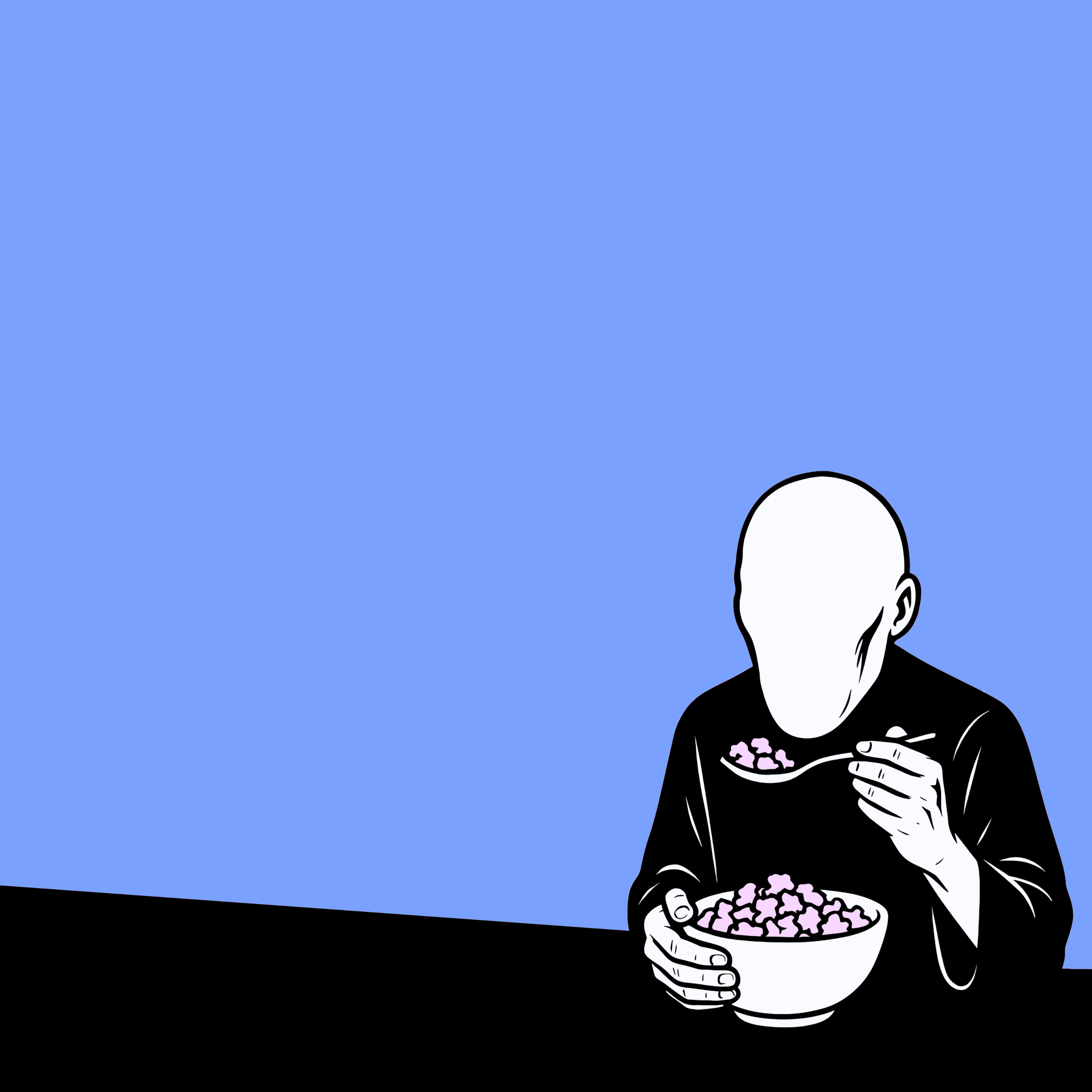
Victoria House - Part 1 of 9
Dermot sat at the same table every day. He rocked his torso and rolled his head aimlessly, humming and hawing in intense conversation that always looked so meaningful, except nobody else was anywhere near him. I couldn’t sit with Dermot again. I had already witnessed two epileptic fits in class, the second of which bloodied my nose as his seizure flung him rigid to the side, his oversized helmet catching me square in the face as I instinctively turned my body to support him.
The abruptness and unpredictability of his seizures left an indelible impression, prompting me to reflect, even at the tender age of ten, on the daily fear that must have accompanied Dermot’s existence. Each time I encountered him, my heart carried the weight of guilt, recognising the stark contrast between his world and mine, and the challenges he faced alone.
Eventually, he left school for a more suitable learning environment — much to everyone’s delight, including the teachers whose collective relief was reflected in their improved attitude toward our raised hands and inane giggling. His empty chair stayed vacant, as if not to tempt some similar eventuality. To me, its image became a cruel epitaph to his time at school. I know I didn’t try hard enough with him. As a kid, I couldn’t describe the feeling I got when glancing at his table. In adulthood, I recognised that feeling to be shame.
Not by choice, I was permanently seated with Ben in class. A gangly boy with an attitude problem — the kind of kid an adult would describe as having a chip on his shoulder and likely the son of a salesman, given his stingy lunchbox swaps: always two of my things for one of his.
I shed a lot of puppy fat in Year Five of junior school; my mother’s strawberry compote sandwiches were swapped regularly with carrot and cucumber sticks. Ben, trading beans for cattle, became wide and unwieldy. His neatly cut hair, rosy-red cheeks, and seemingly inexhaustible supply of pristine uniform belied his stupidity.
I detested every word that came from his mouth, especially when he sensed weakness or unease. Dermot was always easy pickings for Ben — a quick fix when verbally torturing other kids became too challenging for his limited intellect.
Six months into the school year, still seated with Ben, the headmaster introduced our new teacher, Mrs. Tapscott. The unruly class gradually quietened to total silence as she sat at the piano with her tilted head resting on the palm of her hand, smiling broadly. Mrs. Tapscott never had to ask for silence; her kind eyes and smile encouraged compliance in a way the headmaster’s red-faced bellowing could never achieve in our tension-fraught school assemblies.
She was a new breed of teacher. Absent were the fire and brimstone hand-waving demands for respect; instead, she adopted teaching principles that gently informed us of our responsibilities, delivered in parabolic tales gathered from every corner of the earth and for every possible indiscretion.
For the first time in most of our young lives, we were allowed an opinion and to form an interpretation born of our discoveries, not those of our parents. Commonly held working-class principles became malleable and made way for versions of our elders’ stories rooted in love, not fear.
Ben, of course, saw no sense in anything she had to say. One winter day in 1991, his wretched mouth would irrevocably alter my future.
Our return from the half-term holiday came with changes. The tables and teaching apparatus had been moved into a semi-circle, and Dermot’s table had been assimilated somewhere within the new arrangement.
Ben’s eyes widened as he closed in on the space next to mine and, with typically irreverent ardour, declared, “Who will be sat at the spastic table?”
“Spastic” was not a new word to me; my father had referred to me regularly as a spastic while shaking his hands limply from the wrist and moving his eyes upward — usually when I had returned from the shops with something similar to what I had been sent to get but wasn’t quite what was asked for.
I understood it to mean a person with limited mental capability. I knew how it made me feel, and I knew that Mrs. Tapscott would feel hurt by its use. She turned her head in our direction, looked at me warmly, and smiled.
The telephone never rang at home — and if it did, someone had died. I expected this call to inform us of the death of my grandfather, who had recently undergone a cataract operation, a minor surgery inflated in importance by the neurosis of my mother.
My sister and I sat cross-legged in silence as my father pushed on his thick forearms to lift himself out of the armchair and thud toward the telephone. The receiver disappeared in his huge hand, looking as if he were holding just a fist to his ear.
He answered in the same way he greeted people at the door, on the radio at work, and whenever I looked like I had a question but wasn’t brave enough to disturb his peace.
“Yeah?” he barked.
He turned his torso, and the eye that I could see was looking up and down at me. I knew that look. I got the same one when I broke the shed door.
I knew nothing of my father’s history. Nothing about his parents and very little about his surviving brothers and sisters. Our extended family was distant, a select few gathering once yearly at Christmas in awkward silence.
I remember a girl running over to me at school before the Christmas holidays, announcing that we were cousins. I had never seen her before. After sheepishly approaching my father with questions, I learned that my uncle Tom lived two streets away.
Not wanting to push my luck with my father, I quizzed my mother and discovered we had six uncles and aunts living in the same town — all of them with children. It wasn’t until my father’s death 30 years later that I discovered he and his siblings were subject to the tyranny of an alcoholic father; a shared trauma that bound them together as young people, but separated them as adults for fear of discussion about experiences that they all took decades to recover from.
In adulthood, I understood his demeanour. As a child, he was more frightening to me than any closet-lurking monster could possibly be. Mum had an easy time of it while he was at work; the appearance of his hulking silhouette at our open bedroom door when returning from a late shift — and having received a rundown of recent events in the home — was enough to keep us all in line.
My grandmother was a survivor of the Nazi concentration camps. A coordinator for the Dutch resistance, her mooning of German officers as they prepared to enter a church suspected of hiding Jewish children gave the Catholic minister time to move them into the chapel vaults.
Her capture and imprisonment were celebrated lore in the family, and she delighted in pulling up her skirt to show a .22 calibre bullet wound she received for the trouble. Moved from Herzogenbusch to Ravensbrück in the final days of the war, she met my Scottish grandfather during liberation and moved to England for a shotgun wedding.
Despite the aggressive and unreasonable behaviour of my grandfather — not to mention her own dramatic expressiveness — it had been her sense of justice that had been the primary influence on her own children. Rumour has it she failed to call an ambulance when my grandfather dropped to the floor, clutching at his chest.
Father was a senior detective for Surrey Police. A couple of visits to his place of work impressed upon me the need to communicate clearly with him — especially when in the wrong. Hard but fair was the crux of the collective eulogy on his life from peers at his funeral.
He never looked more like a policeman than he did looking at me with the phone in his hand. Despite his casual wear, I saw him in his uniform. I knew I was in for some questions but also that I had done nothing wrong — and that he would know I was telling the truth. I couldn’t maintain any lie; my right eyebrow would wobble with the stress.
“Did he? Hang on a sec,” he said, placing the receiver on his chest as he turned to fully face me.
“Did you call some kid a spastic?”
At first, I made no connection between the claim and what had happened at school. I wracked my brain for answers. After an uncomfortable pause, it dawned on me what was happening. I spoke angrily in response.
“No. That wasn’t me; that was Ben Arness.”
My father’s face immediately turned into a half-smile, and he placed the receiver back to his ear.
“He says he didn’t. Looks like he’s telling the truth to me.”
His responses seemed so abstract; I couldn’t work out what was being discussed. He then looked directly at my sister, his smile broadening.
“We were looking for a permanent place like that for him anyway. We caught him sucking a door handle when he was five.”
My sister blurted out a laugh and pushed me to one side. The event referred to — brought up as often as it could remain funny — made me embarrassed.
“Yeah, that’s fine by me. Okay. Thanks, bye.”
“What happened?” I asked.
“You, my son, are going on a little field trip.”
